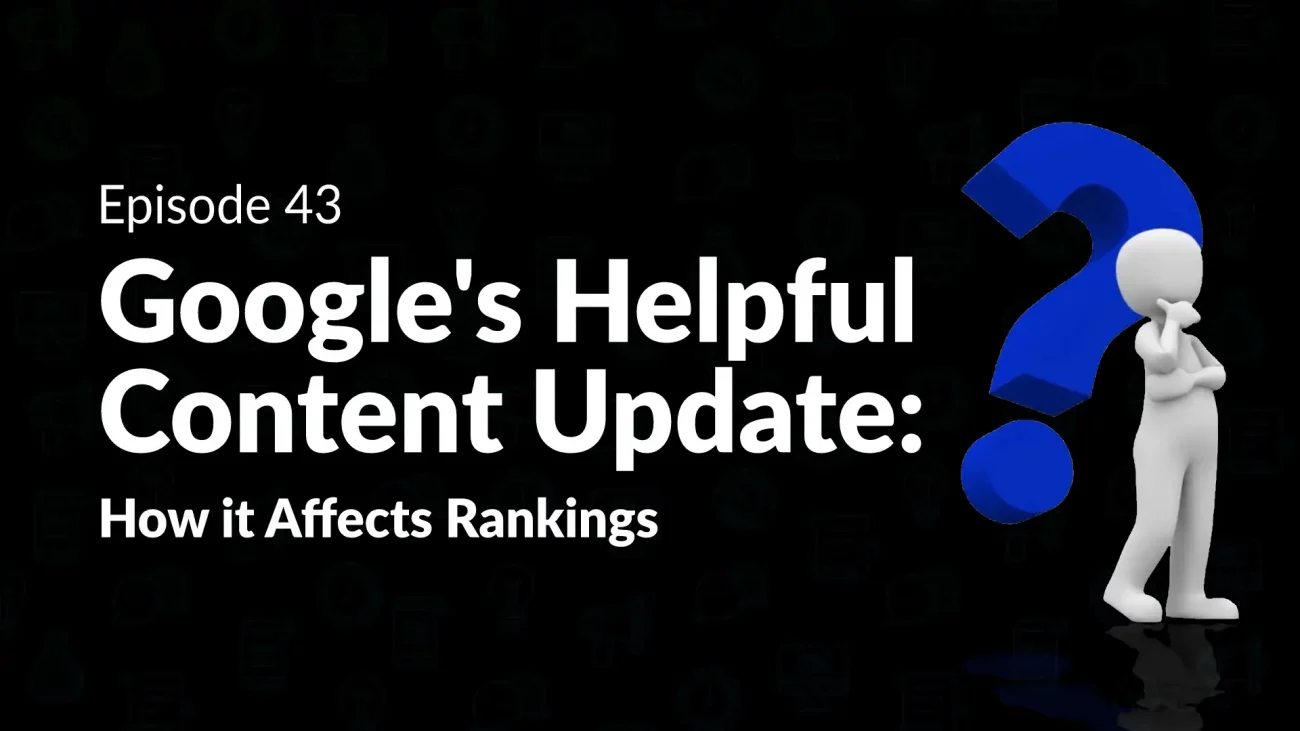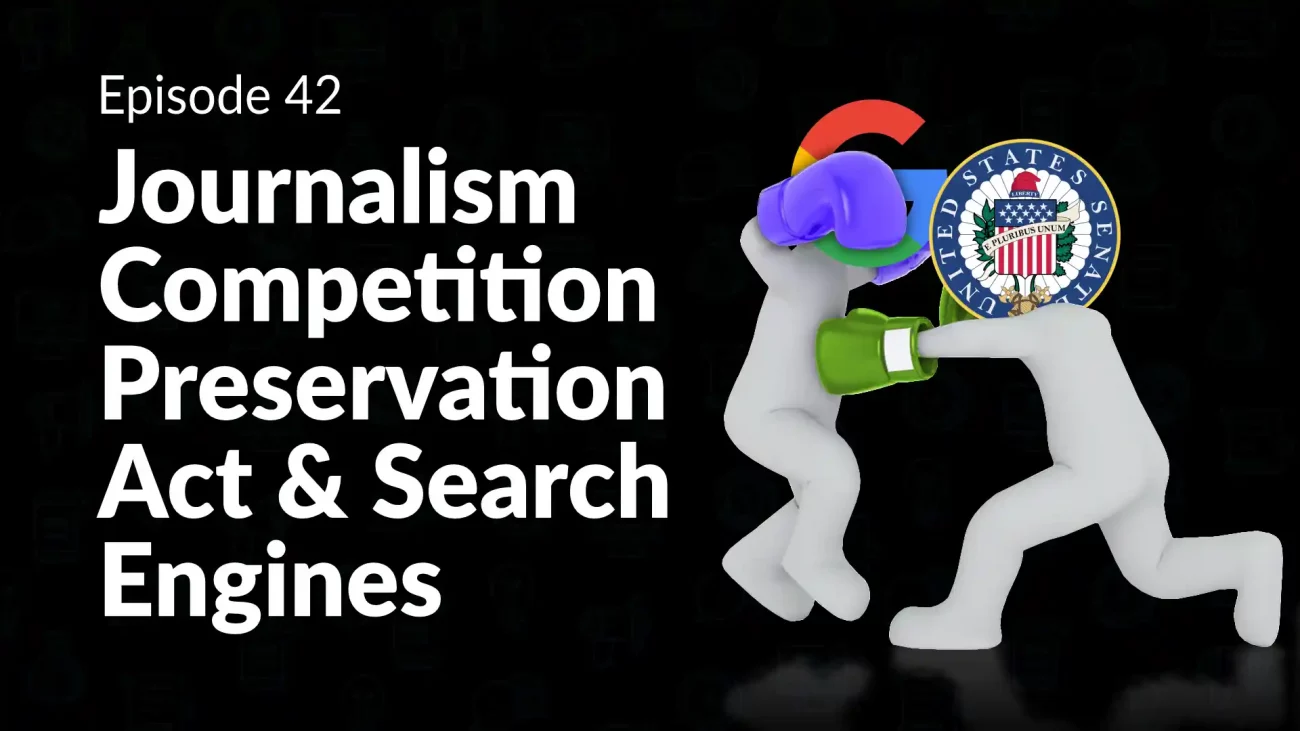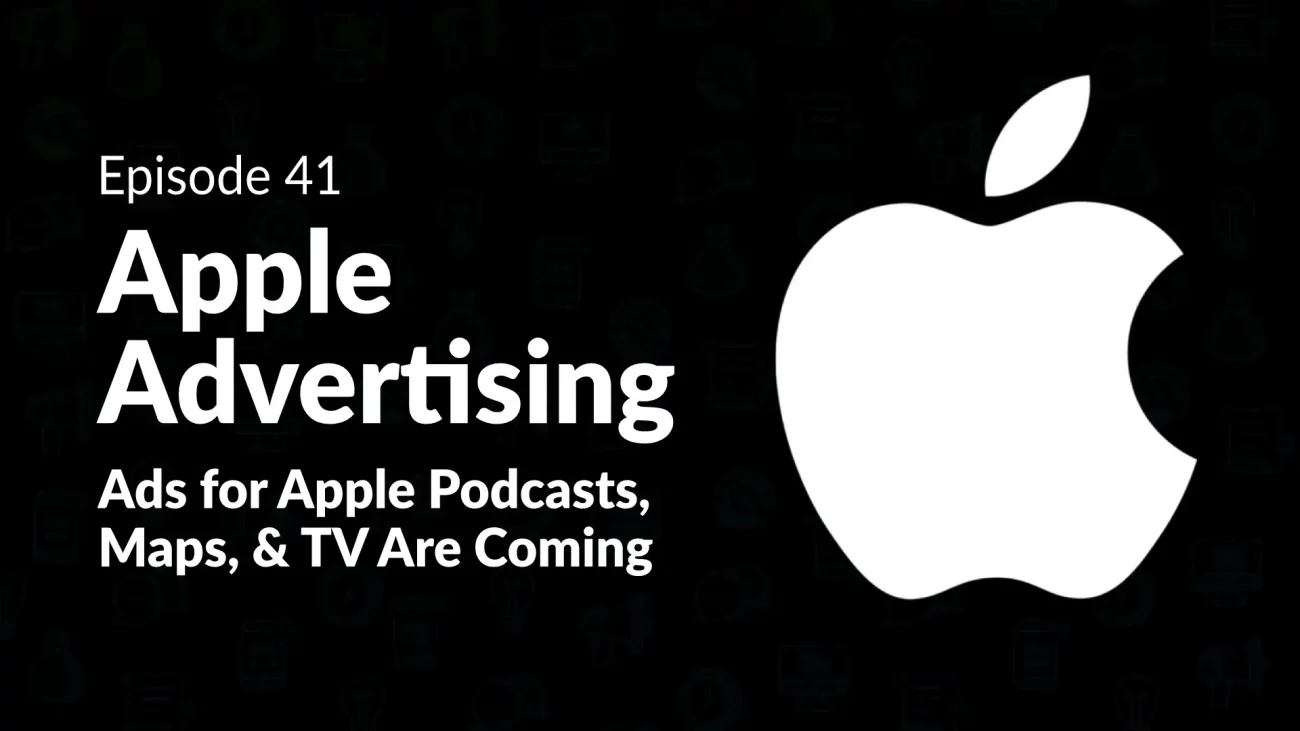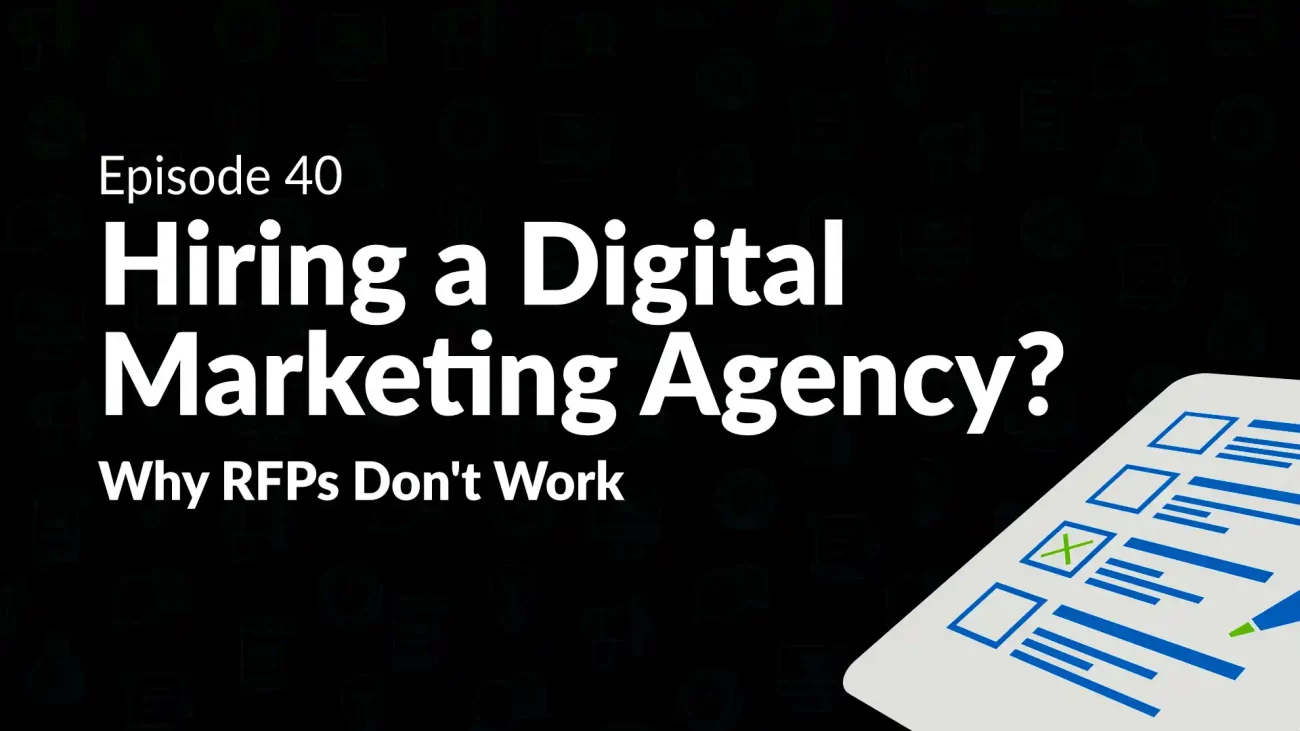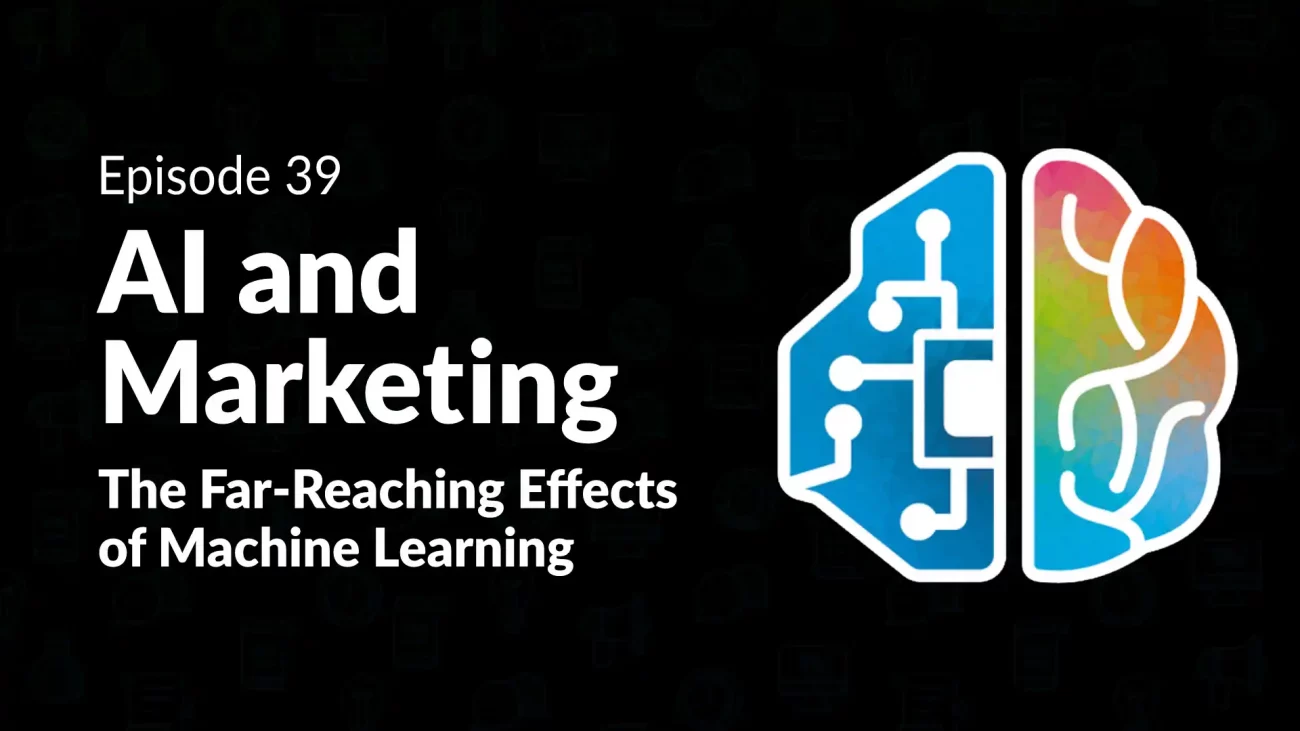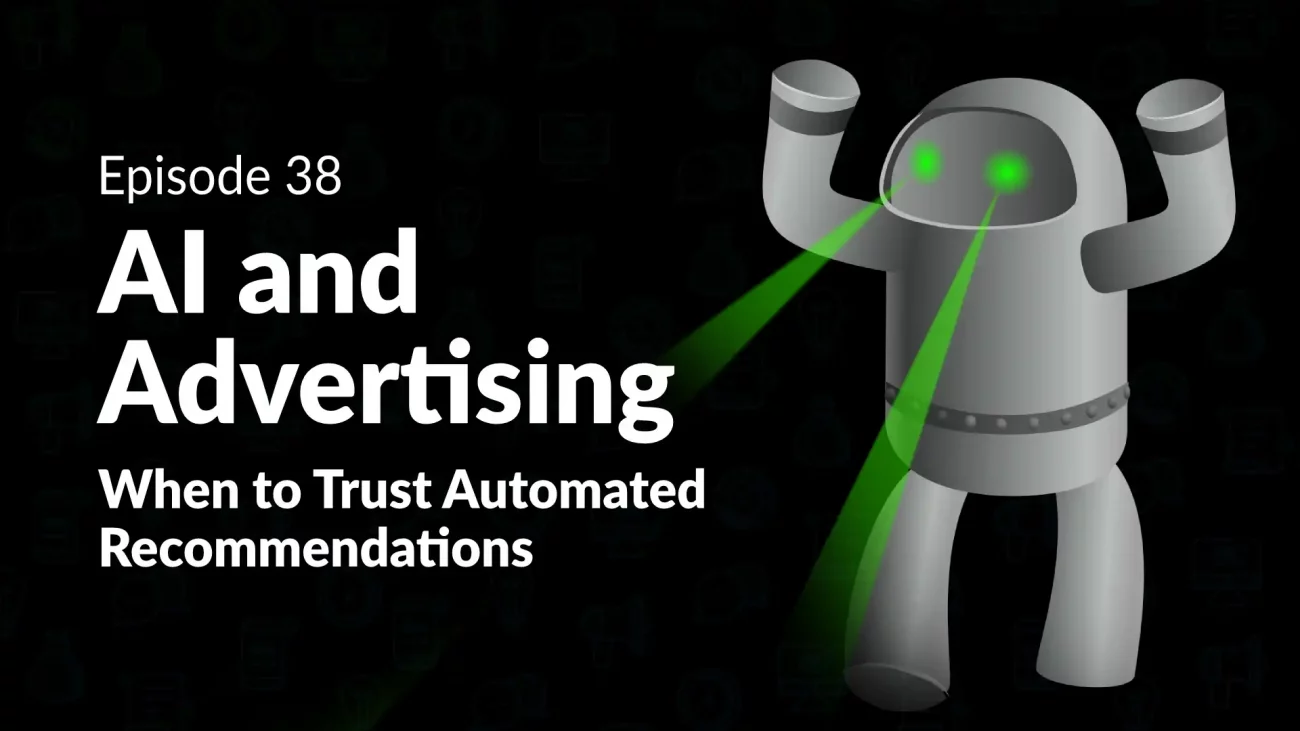Episode 2: The Future of Advertising Post-COVID-19
This week, Hans and Devin dive into the COVID-19 pandemic’s effect on digital advertising and its future repercussions.
Transcription:
Devin: Hey everybody. Thank you so much for tuning in. You are listening to Digital Marketing Mondays. On this show, we talk about all the things that are happening in the digital marketing world and why it’s relevant to you and what you need to know to adjust your marketing strategies moving forward. Before you go any further, do make sure to hit the subscribe button, the like button, whatever kind of buttons are around, whether you’re listening, watching, or reading, we greatly appreciate it. But before we get any further I’m Devin Littlefield.
Hans: And I’m Hans Riemer. And today we’re going to talk about the effect that the pandemic has had on digital marketing. So let me start with a question for you, Devin.
Devin: Sure.
Hans: How has the pandemic affected digital marketing in your opinion?
Devin: I mean, it’s been quite a shift. I think certainly what we’ve seen is that the whole world absolutely had to go into that digital first approach, whether you were a small restaurant that had to figure out a way to be able to deliver food or have an app that people can order from. Right. Then all the way through, of course entertainment. And then of course, into advertising as well. With so many people at home more often now just stuck in the house trying to keep safety from other folks, clearly the jump in number of people that were online and online more just grew seemingly exponentially overnight. And that, I think that trend is certainly continued for quite a while through these last 18 months or so.
Hans: So do you think that the ad spend is up, do you think that people are spending more money on advertising during the pandemic?
Devin: Yeah. Yeah, actually a report by Econsultancy, excuse me, reference that Q2 2021 year over year comparison advertising was up nearly 24% in total ad spend globally. I think that certainly doesn’t seem to be that shocking. I actually thought it might’ve been a little bit higher considering. But I think what is clear, and Google’s had similar numbers to this as well. So it’s really clear out of all of this is that companies are trying to spend more because there’s more people that are online now. So there’s more inventory available, therefore more ways to be able to spend to kind of get in front of your ideal audience. So I think those numbers will continue to rise. No doubt about that. And yeah, I think advertising is, especially as more platforms are coming online now, there’s just going to be more ways to get in front of people.
Hans: Yeah, I guess that makes sense. Because in person types of things like trade shows, right, they were canceled. They couldn’t happen. And the show must go on, right? So you’ve got to find a new way to connect with your prospects. So apparently digital’s the way to go. Let me ask you this. Do you think that now that the pandemic is at least hopefully starting to wind down, do you think we’re going to go back to the normal quote unquote that was there before this all happened?
Devin: That’s a good question. And I would argue, no, I think the digital shift is permanent. And I actually believe that’s a phrase that Google had mentioned during their marketing live stream a few months ago. I think we are absolutely in a digital first economy now, and there’s no going back. That’s not to say that traditional means of marketing are going by the wayside. I think they are going to continue to taper down, but of course I think companies need to continue to think about digital first priorities for all marketing strategies. And certainly I think that leads to the idea of really honing in on your audience and becoming much more refined. I think that should be a key priority for really anybody in their marketing strategy, especially in 2022 and beyond.
Hans: Yeah. So I was going to ask you, what sort of shifts do you think that are, or should our friends in marketing out there, the undertaking, given this shift to digital now, what advice do you have for people to take advantage of this change?
Devin: Sure. And honestly, I think it ties in a lot to a good conversation that you and I had last week about the removal of third party cookies in that marketing automation, or now the newer way to coin it, revenue enablement needs to continue to be a priority and that’s gathering first party data. It’s collecting information of users and not just collecting the information, but also making sure that you have the means to be able to collect them. So really your content strategy needs to be on point now going forward. There’s no excuses for not being able to develop content, whether you’re at home, even just on a cell phone just doing your recordings, there’s always way to captures people’s attention. Right. And you need to do so in a thoughtful way that’s going to engage with your audience. And so certainly that all ties in with this marketing automation element. And your content strategy and your content development need to go hand in hand with that. So that’s one of the ways that I think is going to be ongoing paradigm shift for a lot of folks moving forward.
Hans: It sounds like you’re saying you got to make every lead count better than we were before. Right. And in the past, back in the direct mail days, I remember the old saying was something like your house list is the best list to go after, the best one to go after. I think, some of those old truisms are true today as well. And of course, if you’re going to have a house list, you’ve got to build a house list. So it behooves you to get great content out there to start engaging with your prospects early in the buying process. Right.
Devin: Right. Absolutely. And that’s where I think, especially for high-tech SAS companies, as an example, having a really defined audience I think is going to be critical moving forward. I think long gone are the days of being able to spray and pray and hope for the best, especially in this digital economy, because frankly companies like Google, they’re making money hand over fist on advertising because they’re taking advantage of automated strategies. And assuming that people are not taking the oversight to actually better control where ads are showing up. And so it goes without saying I think, and to your point of making every lead count, I think your audience needs to continue to be a core focus. And creating a strategy around platforms and creative, of course, in content that really kind of key in and focus on those folks.
Hans: Cool.
Devin: So for marketing high-tech SAS companies, I don’t think Facebook advertising is a really good play. I really don’t. Well, I know that the number of US B2B marketers that are now on Instagram, nearly tripled from last year. I still don’t think that that’s going to be a huge opportunity for those high tech SAS companies,
Hans: Right.
Devin: But it’s going to be great for higher education of course. And certainly even for credit union marketers as well.
Hans: Yeah.
Devin: And I think just one other key point here is that very similar to how we’re seeing the division of streaming services online now, right, between Discovery Plus, Paramount Plus, Netflix, Disney Plus, and pretty much anybody has a plus now it seems like that was a traditional channel. Advertising is now going in the same direction as well. More and more platforms are coming online and they’re giving Google particularly less control over where ads are being shown in favor of creating their own platform and their own network of advertisers. TikTok is one that have done that recently. Disney’s actually going to be announcing their own ad platform that will specifically remove any other programmatic players in favor of their own platform. Spotify is now actually, has their own ad enabled platform as well.
So it’s just getting, I think very much like the streaming market, the ad market is going in the same direction. And so having a clear plan of action of identifying your target audience, knowing which platform they’re on based on those criteria and then creating the content and the ad strategy to go after them is going to be critical to developing good leads moving forward. And that of course gets divided up by whatever industry or whatever your target is.
Hans: Yeah. So what I’m hearing you say is it’s not enough to basically take Google search and the display network and say, okay, I’m going to put all my money there and anything that’s not search related, I can rely on display network to reach the people I want. You’re saying, no, you really have to figure out which various platforms and there are probably several that can help you find your target audience and you need to master all of those. So life has just gotten a little more complicated, hasn’t it?
Devin: Yeah, it absolutely has. And I think, while seemingly daunting that you’re now having to go between these different platforms. I think the advantage is you can really curate your messaging and your content to this specific medium. It’s now easier than ever to make sure that you’re getting the right content in front of the right person, based on their position in the customer journey. As an example, serving case study ads in Google display based on previous site actions that they took. You can also then time that in with well-timed emails or drip campaigns around them. Right? So it’s that one example of what really is a well-timed strategy and understanding your customer and your customer journey, and then serving ads appropriately within the different platforms, respectively.
Hans: Okay. So we got our work cut out for us. Well,
Devin: Yes, we do.
Hans: That’s enlightening. Yep. Thanks, Devin.
Devin: Yeah. Yeah, absolutely.
Hans: It’s been good going through this. And want to wrap us up?
Devin: Yeah, I sure do. So thank you again. Of course, everybody who’s tuning in, whether you’re listening, watching, or reading this content. We certainly love to hear any feedback that you may have about the show. So please send it along.
Hans: Drop us an email, drop a comment in the message section. If you have a topic that you’d like us to cover, let us know. We’d probably be interested in doing it for you. So thanks for listening. We’ll catch you next week.
Devin: Thank you all very much.




